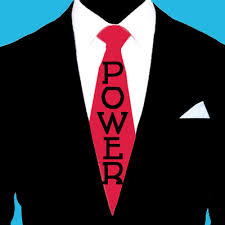Keep the Puffery in your Pants
I have a tee shirt that says “It’s all about me!” … but I’ve never worn it. What hubris would announce to the world that nothing matters except me? In fact, I keep this shirt to remind me of who I don’t want to be.
Clothing – however worn (or not worn) – enrobes character. Our clothes reflect our choices to reveal or conceal, how to depict ourselves, and the forces (both within us and beyond us) that shape our choices. (Remember the movie “The Devil Wears Prada”?) We dress “up” and “down” for mood, to fit in or expressly not fit in. What we wear reflects our sense of modesty; military jackets and jackboots express authority and importance (real or perceived). The messy fringes of the tallit worn during prayer remind us not be so sure of our ends.
Clothes also can remind that humility is what keeps those having power from overstepping. Whether a parent, teacher or politician, humility is critical to respectful behavior and even making others feel safe. Torah advised that our greatest leader, Moses, was the most humble of men, and his garb remained simple even as the High Priest’s vestments were to be adorned with the finest gemstones.
But even for the High Priest, modesty was a key theme for Torah’s treatment of clothes. Underscoring the point, parshat Tetzaveh of Torah this week teaches of the High Priest: “Make for [the priests] linen breeches to cover their nakedness; they shall extend from the hips to the thighs.” Boxer briefs anyone? The priestly clothing would be a symbol of modesty even amidst the physical opulence of their ritual clothes.
The expression of ego by covering or revealing genitalia may not seem like a core Torah topic, but it was both very real and metaphor in ancient days – and it’s still very real today. Michael Lewis’s book Liar’s Poker described successful traders on Wall Street as “big swinging dicks.” Remember the first time you saw Michael Jackson grab his crotch on stage? Or Madonna writhing in outrageous costumes simulating sex? Seems quaint now. Vast swaths of modern culture seem to extol the outrageous and devalue modesty to the extent that we’ve become inured to it – or maybe enraptured by it. We can all support personal freedom of expression, but at some point unfiltered, insensitive expression become a problem. At what point, in the words of my unworn tee shirt, does it become too much “about me”?
No wonder we have a President who is the epitome of “me.” Look at my numbers! Listen to the applause! Buy my daughter’s clothing! Self-promoting, hyper-egocentric leadership emerged because vast swaths of American society is inured to if not welcoming this behavior. Reality TV, shameless marketing, and a disregard for precision in speaking truth are tolerated and earn high ratings from Americans.
Maybe you say that this doesn’t apply to you: maybe you don’t follow the exploits of the Kardashians, and maybe you appreciated Obama’s humility and restraint. Even so, there are ways in which one can swear to defend a person’s right to be offensive without approving the offense. Spiritually speaking, they are not the same – and we devalue society when we conflate the two. Let’s address the immoral arrogance of those who seek excess attention and power. We must start by calling out excess egotism dressed in bright red power tie and not modest pants suit. The prophet Micah adjured us that justice and mercy are paired with walking humbly with God.
As always, change begins with us. Perhaps the humility and modesty that can help check the basest impulse (in Hebrew, the yetzer) begin with how we dress and behave in public. For in the end, the great designer of whatever we wear (in Hebrew, the yotzer) is the holy power of creation and transformation that we call God. Let us all wear the cloak of acting justly and loving mercy, as the Prophet Micah taught – and keep the puffery under wraps.
R’ Evan J. Krame






 Evan J. Krame was ordained as a rabbi by the
Evan J. Krame was ordained as a rabbi by the